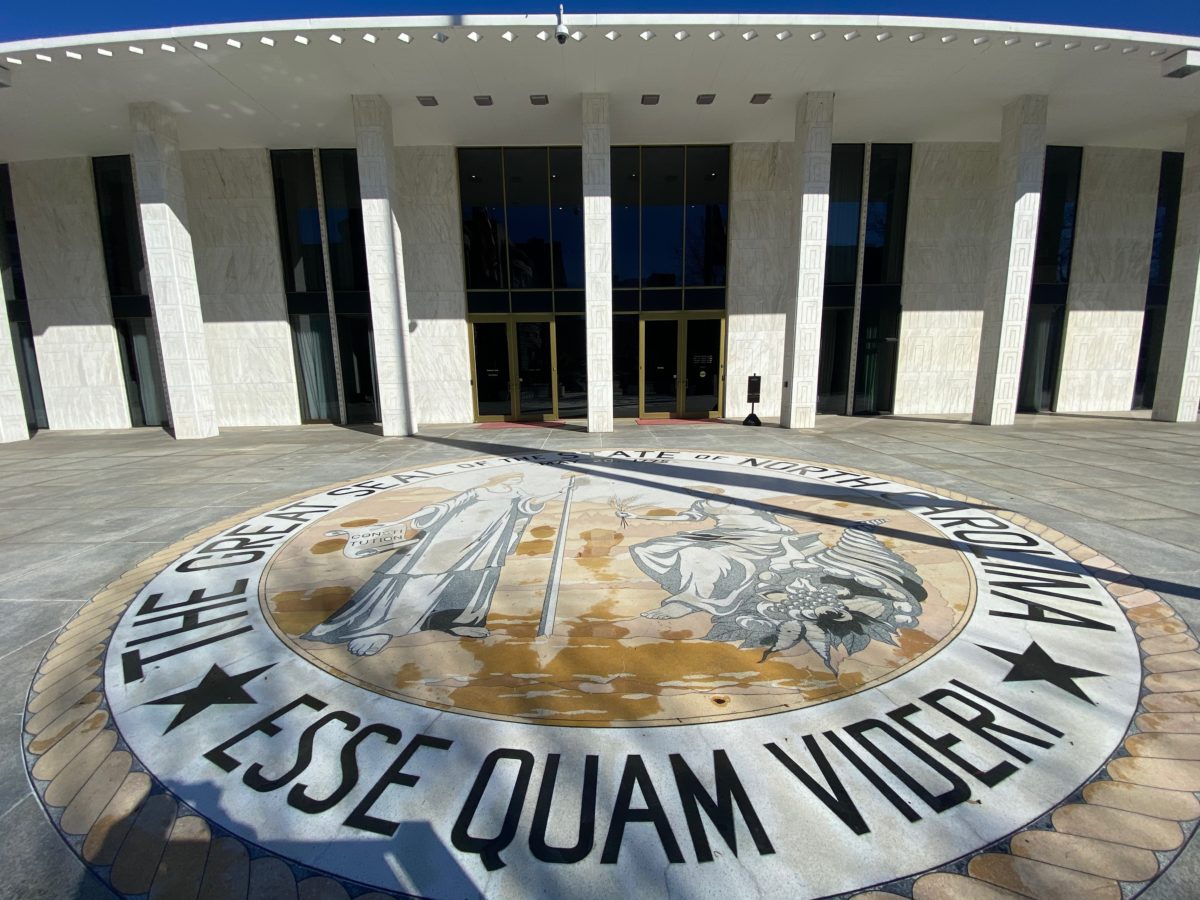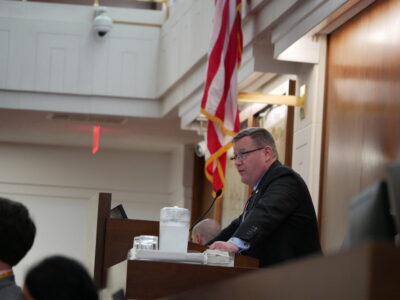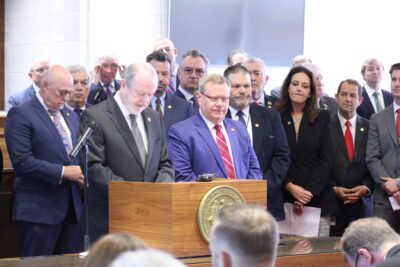
|
|
The North Carolina Republican-led House successfully overrode the governor’s veto of a wide-ranging omnibus bill on Wednesday that includes various regulatory changes that impact the power of several incoming Democratic elected officials.
The veto was overridden by the House along party lines, with a 72-46 vote. The three Republicans representing western North Carolina who previously voted against the bill — Reps. Mike Clampitt, Karl Gillespie, and Mark Pless — each voted to override the veto on Wednesday.
Though “Disaster Relief” is part of the bill’s title, the vast majority of the bill does not explicitly deal with hurricane aid. The bill transfers $227 million to the Hurricane Helene fund for future allocations, and appropriates $27 million to the Department of Agriculture for debris removal and technical assistance. The remainder of the 131-page bill deals with various budget and regulatory changes.
Because the Republic-led Senate also voted to override the legislation, Senate Bill 382, on Dec. 2, the bill will now become law.
Sign up for the EdDaily to start each weekday with the top education news.
House Republicans have said the bill is only a step in the state’s hurricane recovery.
Rep. Destin Hall, R-Caldwell, said the state needs to maximize federal funding before spending the state’s savings. After meeting with the state’s congressional representatives, Hall said North Carolina is hoping to receive around $25 billion in federal relief aid.
“That’s the kind of money that it’s going to take to make a material impact on the disaster in western North Carolina,” he said. “What we do as a state is what we’ve done this time, we come in and we pass a bill to try to meet at least some immediate relief for those folks who are most affected. And this body now has passed roughly $1 billion in funding for storm relief for western North Carolina.”
Democratic officials, including Gov. Roy Cooper, have said the bill focuses on removing power from elected Democratic officials, rather than on much-needed relief in western North Carolina.
Among other statutory changes, the bill strips incoming Democratic Gov. Josh Stein of any appointments to the State Board of Elections. Instead, the bill would give those appointments to the newly elected state auditor, Republican Dave Boliek.
The bill also reduces the governor’s appointment power over vacancies in the Supreme Court and the Court of Appeals and limits the power of the attorney general, incoming Democrat Jeff Jackson.
“If we’re coming back in the midst of the worst disaster that we have had in the history of this state, I would have loved for us to use this as an opportunity to put everything about our politics aside,” said House Democratic Leader Rep. Robert Reives, II. “We need to help people get their lives back. … That’s what I wish we would concentrate on. But what I’ve heard today is a focus on politics, and I am disappointed, sorely so.”
Education items in the bill
The omnibus bill does not include any new Helene aid for public schools or community colleges.
However, the bill does allocate $33.75 million to the Department of Health and Human Services to provide child care programs with stabilization grants for another three months beyond December, through March 2025.
Advocates were asking for $100 million to extend the grants beyond December, with the hope that next year’s long legislative session will bring more funding. Program closures and tuition hikes for parents are likely without additional funding, EdNC previously reported.
The bill does extend compensation for public school districts in Helene-impacted counties through November. Initial rounds of hurricane relief provided compensation for September and October.
The bill also includes several policy changes for K-12 public schools and the Department of Public Instruction (DPI).
First, the bill removes power from the state superintendent — incoming Democratic Superintendent Mo Green — to appeal a final decision by the Charter School Review Board related to grants, renewals, revocations, or amendments of charters. Now, only applicants or charter schools can appeal a final decision by the board.
The bill also moves the Center for Safer Schools from DPI’s authority to the State Bureau of Investigation (SBI). According to its website, the center is “a statewide customer-focused school safety and crisis prevention resource for over 2500 public schools.”
In the postsecondary space, the bill amends previously awarded grants to two community colleges, transfers up to $1 million to the NCCCS to “conduct a digital credential pilot program with a digital credential provider,” and expands the Career and College Ready Graduate program.
You can read more about the bill’s wide-ranging provisions in the article below.
Recommended reading




